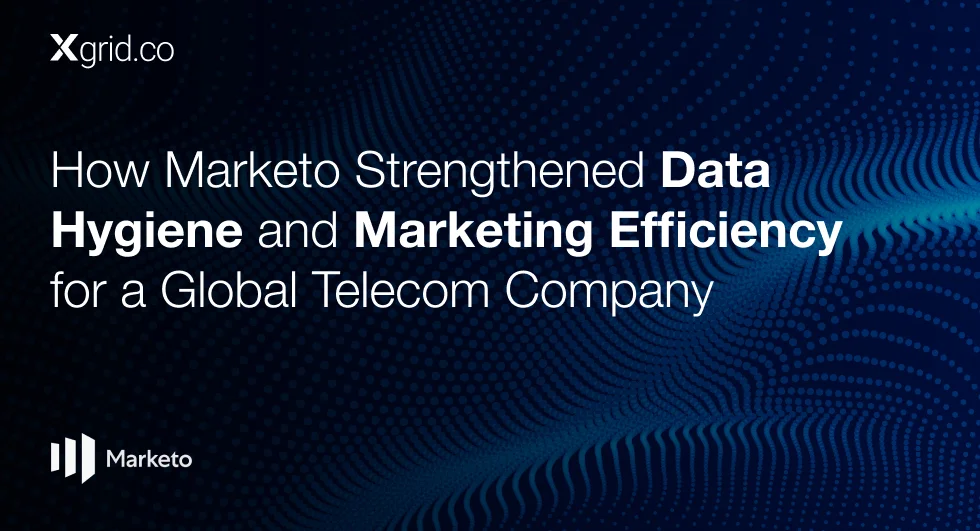The Advanced Guide to Marketo Program Templates for Experts
Marketo Engage, a leading marketing automation platform, offers a powerful solution to these challenges through its program templates. These templates are instrumental in standardizing processes, reducing repetitive tasks, and ensuring a cohesive customer experience across all touchpoints.
Deep Dive into Program Templates
Benefits
- Consistent Customer Experience
One of the primary advantages of using program templates in Marketo is the ability to deliver a consistent customer experience. This consistency is crucial for building trust and recognition among your audience.
Program templates ensure campaign success, as it adhere to the same branding guidelines and messaging standards. For instance, a welcome email series template can maintain uniformity in tone, design, and content, reinforcing your brand identity each time a new subscriber joins.
- Enhanced Brand Image
Program templates significantly enhance the professionalism of your marketing campaigns. By providing pre-approved structures and content, templates help maintain high-quality standards across all communications.
This uniformity not only presents your brand as polished and reliable but also increases the likelihood of customer engagement and retention. Consistent use of templates elevates your brand image, making every interaction with your audience a reflection of your commitment to excellence.
- Streamlined Workflows
Beyond basic automation, program templates streamline complex workflows, making sophisticated marketing strategies more manageable. Templates can automate multi-channel communication and intricate lead nurturing sequences, freeing up your team to focus on strategic tasks.
For example, a template for a multi-step webinar promotion can automate the invitation, reminder, and follow-up emails, ensuring timely and coordinated communication with minimal manual intervention.
- Reduced Program Build Times
Time is a valuable resource in marketing. Program templates can drastically reduce the time required to build and deploy campaigns. By reusing pre-built structures, marketers can quickly adapt templates for new campaigns without starting from scratch.
This efficiency translates into significant time savings and better resource allocation. Case studies have shown that using program templates can cut program build times by up to 50%, allowing marketing teams to execute more campaigns with the same resources.
- Minimized Errors
Consistency in templates not only enhances brand image but also minimizes the risk of errors. Predefined templates reduce the likelihood of inconsistencies and mistakes that can occur when building campaigns from scratch.
For example, templates can prevent issues like missing links, incorrect branding elements, or misplaced content. By standardizing the process, templates help ensure that every campaign is error-free and professional.
When to Use Program Templates
- Recurring Program Types
Program templates are particularly beneficial for recurring campaign types. Examples include welcome email series, webinar promotions, and monthly newsletters.
For instance, a webinar promotion template can include all the necessary steps: registration landing page, confirmation emails, reminder emails, and post-webinar follow-up, ensuring a seamless and consistent experience every time a new webinar is launched.
- Audience Segmentation
Program templates can also be adapted for different audience segments. By creating variations of a template, marketers can tailor messages to specific demographics, industries, or customer behaviors. For example, a template for a product announcement can have different versions for existing customers and potential leads, each with personalized messaging that resonates with the respective audience.
Advanced Strategies for Program Template Creation
Planning and Strategy
- Developing a Program Template Strategy
Creating an effective program template strategy requires careful planning. Considerations should include your business goals, target audience, and the types of campaigns you frequently run. A well-thought-out strategy ensures that your templates align with your overall marketing objectives and cater to the needs of your audience. Best practices involve identifying common campaign structures and standardizing them into reusable templates.
- Standardization and Naming Conventions
Consistent naming conventions are vital for organization and collaboration within Marketo Engage. Establishing a clear and systematic approach to naming templates helps team members quickly identify and access the right templates. For example, naming templates by campaign type and date (e.g., “Webinar_Promotion_2024_Q1”) can streamline the search process and improve efficiency.
- Global vs. Local Tokens
Tokens are placeholders used in Marketo to personalize content dynamically. Global tokens apply universally across multiple programs, while local tokens are specific to individual programs. Global tokens are ideal for company-wide information, such as contact details or disclaimers. In contrast, local tokens allow for program-specific customization, such as event dates or personalized greetings. Understanding the purpose and benefits of each type ensures you leverage them effectively in your templates.
Building Advanced Program Templates
- Leveraging Smart Campaigns and Smart Lists
Smart Campaigns and Smart Lists are powerful tools within Marketo that enhance the functionality of program templates. Smart Campaigns automate actions based on predefined triggers, while Smart Lists dynamically segment your audience.
Integrating these tools with templates allows for personalized and segmented communication. For example, a Smart Campaign can trigger follow-up emails based on webinar attendance, while a Smart List can segment recipients by engagement level.
- Integrating Landing Pages and Emails
Creating a seamless user experience requires cohesive design and messaging across all channels. Program templates should include both landing pages and emails that match in style and content.
For instance, a template for a lead generation campaign should have a corresponding landing page and email series that reinforce each other, ensuring a consistent journey from initial contact to conversion.
- Reporting and Analytics
Tracking the performance of your program templates is essential for continuous improvement. Marketo offers robust reporting and analytics tools that can monitor key metrics such as open rates, click-through rates, and conversion rates. By analyzing this data, marketers can identify areas for optimization and refine templates to achieve better results.
Advanced Considerations
Security and User Permissions
Proper access control is crucial to maintain the integrity of your program templates. Strategies for managing user permissions within Marketo Engage include defining user roles and setting permissions based on responsibilities. This ensures that only authorized personnel can modify or deploy templates, reducing the risk of unauthorized changes and maintaining consistency.
Version Control
Maintaining consistency and tracking changes in your templates is facilitated by effective version control. Implementing version control practices, such as documenting changes and maintaining a template repository, helps keep track of modifications and ensures that the most current version is always in use. This practice is particularly important for large teams where multiple users may access and update templates.
Integration with External Systems
Integrating program templates with other marketing automation or CRM systems can enhance their functionality. Considerations for integration include data synchronization, workflow automation, and reporting. For example, integrating Marketo templates with a CRM system can ensure that lead information is automatically updated, enabling more personalized and timely communication.
Conclusion
Program templates in Marketo Engage offer numerous benefits, from ensuring a consistent customer experience to streamlining complex workflows. By adopting advanced strategies for template creation and considering factors such as security and integration, marketers can fully leverage the power of program templates.





